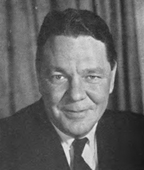華倫委員會

甘迺迪遇刺事件總統調查委員會(英語:The President's Commission on the Assassination of President Kennedy),又稱華倫委員會(英語:Warren Commission),是由第36任美國總統林登·莊遜下令成立的總統委員會,以調查發生於1963年11月22日的第35任美國總統約翰·甘迺迪遇刺事件。[1]該委員會成立於1963年11月29日,美國國會也通過第137號參議院聯合法案( Senate Joint Resolution 137 ),授權該總統委員會調查、匯報甘迺迪總統遇刺案,要求相關證人的必須出席並提供證詞,還須提供取證過程。[2]
這個總統委員會的非正式名稱「華倫委員會」來源於該委員會的主席——第14任美國首席大法官厄爾·華倫。[1]該委員會調查後得出一份888頁的《華倫報告》(Warren Report),最終的核心結論為:李·哈維·奧斯瓦爾德是獨自一人刺殺甘迺迪總統、傑克·魯比是獨自一人於2日後槍殺李·哈維·奧斯瓦爾德[1][3]。1964年9月24日,該委員會解散,該報告已於美國政府網站上全文刊登。[1]但報告中的結論經常被質疑,而民間也產生了許多陰謀論。[4][5]
委員會形成
[編輯]甘迺迪遇刺案發生後,前美國司法部長尼古拉斯·卡岑巴赫建議成立一個委員會調查該案件。[6] 1963年11月28日,卡岑巴赫將一份備忘錄送到白宮,建議繼任總統林登·莊遜成立調查委員會,而且為了防止爭議,委員會的調查結果必須公佈與眾、讓民眾信服。[7][8]
1963年11月29日,調查委員會成立,林登·莊遜隨後也任命了許多美國重要人物作為委員會的成員,包括第14任美國首席大法官厄爾·華倫。[1][7][8]
委員會成員
[編輯]- 華倫委員會成員
委員會結論
[編輯]華倫委員會的調查結論如下:[1]
- 射殺約翰·甘迺迪總統、射傷約翰·康納利州長的子彈是從德克薩斯學校圖書儲藏所第6層東南角的窗戶處發射的。
- 第一發射中甘迺迪總統的子彈從他的脖頸後部進入、從脖頸的前端下部射出,造成非致命傷。第二發射中甘迺迪總統的子彈從他的頭部右後方進入,造成大面積致命創傷。
- 射中康納利州長的子彈從他的背部右側進入、在右側的胸腔內下行、從右側乳頭下部射出。這枚子彈之後穿過他的右手腕、進入其左側大腿,造成了輕微傷。
- 無可信證據表明子彈是從摩托車隊的前方(Triple Underpass)或者其它地方發射的。
- 可信證據顯示兇手開了3槍。
- 雖然華倫委員會不需要去確定具體是哪一發子彈射傷了康納利州長,但專家們找到了非常信服的證據顯示穿透甘迺迪總統喉嚨的那發子彈就是射傷康納利州長的子彈。儘管如此,康納利州長的證詞以及其它一些因素顯示了另外的可能性,但華倫委員會的每一個成員都確信所有的射中甘迺迪總統以及康納利州長的子彈都是從德克薩斯學校圖書儲藏所第6層的窗戶處發射的。
- 射殺約翰·甘迺迪總統、射傷約翰·康納利州長的子彈是由李·哈維·奧斯瓦爾德發射的。
- 奧斯瓦爾德於刺殺事件發生45分鐘後又殺害了達拉斯巡警J. D. 蒂皮特。
- 傑克·魯比進入了達拉斯警察局的地下室並射殺了李·哈維·奧斯瓦爾德,同時沒有證據顯示達拉斯警察局內有成員協助魯比的行動。
- 華倫委員會沒有發現任何證據顯示奧斯瓦爾德或者魯比是美國國內或國外的陰謀刺殺甘迺迪總統組織的成員。
- 華倫委員會沒有發現任何證據顯示美國聯邦政府、州政府、地方政府的官員有任何陰謀、顛覆或者對美國政府的不忠行為。
- 華倫委員會無法完全確認奧斯瓦爾德的行兇動機。
- 華倫委員會通過此次調查,相信對總統的安保措施升級是完全必要的。[9]
後世影響
[編輯]在《資訊自由法案》和1992年的《甘迺迪檔案法案》推動下,在1992年98%的華倫委員會檔案都已開放。在同一年成立的暗殺檔案覆核小組(英語:Assassination Records Review Board)工作六年後,華倫委員會的檔案除了那些與稅務估計有關、由稅務局簽發的之外都向民眾開放,但不包括甘迺迪的屍檢照片和X光照片,它們是由甘迺迪家族附加了限制條件於1966年捐給海軍檔案庫的。[10]剩餘相關的報告檔案則於2017年開放。[11]
參見
[編輯]參考資料
[編輯]- ^ 1.0 1.1 1.2 1.3 1.4 1.5 Warren Commission - Introduction. National Archives. 2016-08-15 [2019-10-05]. (原始內容存檔於2019-04-10) (英語).
- ^ Joint resolution authorizing the Commission established to report on the assassination of President John F. Kennedy to compel the attendance and testimony of witnesses and the production of evidence – P.L. 88-202 (PDF). 77 Stat. 362. U.S. Government Printing Office. 1963-12-13 [2019-11-12]. (原始內容存檔 (PDF)於2018-09-23).
- ^ Pomfret, John D. Commission Says Ruby Acted Alone in Slaying. The New York Times. 1964-09-28: 17.
- ^ JFK assassination conspiracy theories: The grassy knoll, Umbrella Man, LBJ and Ted Cruz’s dad 請檢查
|url=值 (幫助). Washington Post. [2019-10-05] (英語).[永久失效連結] - ^ Mancini, John. The first JFK files ignited conspiracy theories around the world. Quartz. [2019-10-05]. (原始內容存檔於2019-08-16) (英語).
- ^ Savage, David G. Nicholas Katzenbach dies at 90; attorney general under Johnson. Los Angeles Times (Los Angeles). 2012-05-10 [2014-12-12]. (原始內容存檔於2014-12-23).
- ^ 7.0 7.1 Savage, David G. Nicholas Katzenbach dies at 90; attorney general under Johnson. Los Angeles Times (Los Angeles). 2012-05-10 [2014-12-12]. (原始內容存檔於2014-12-23).
- ^ 8.0 8.1 Nicholas Katzenbach, JFK and LBJ aide, dead at 90. Politico. AP. 2012-05-09 [2014-12-12]. (原始內容存檔於2014-12-27).
- ^ Chapter 1. National Archives. 1964-09-24 [2019-11-12]. (原始內容存檔於2019-06-22) (英語).
 本文含有此來源中屬於公有領域的內容。
本文含有此來源中屬於公有領域的內容。
- ^ ARRB Final Report (頁面存檔備份,存於互聯網檔案館), p. 2. Redacted text includes the names of living intelligence sources, intelligence gathering methods still used today and not commonly known, and purely private matters. The Kennedy autopsy photographs and X-rays were never part of the Warren Commission records, and were deeded separately to the National Archives by the Kennedy family in 1966 under restricted conditions.
- ^ "[U]nless the president certifies that continued postponement is made necessary by an identifiable harm to the military defense, intelligence operations, law enforcement, or conduct of foreign relations, and the identifiable harm is of such gravity that it outweighs the public interest in disclosure.」 — JFK Records Act. Both the National Archives and the former chairman of the ARRB estimate that 7.6 percent of all identified Kennedy assassination records have been released kent to the public. The great majority of the unreleased records are from subsequent investigations, including the Rockefeller Commission, the Church Committee, and the House Select Committee on Assassinations.







